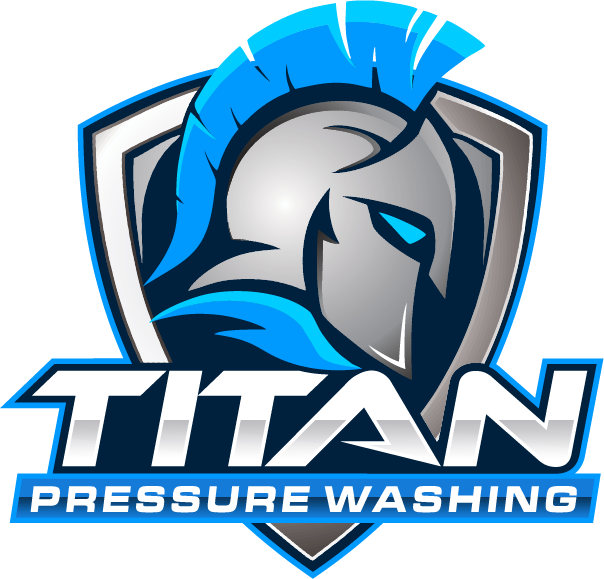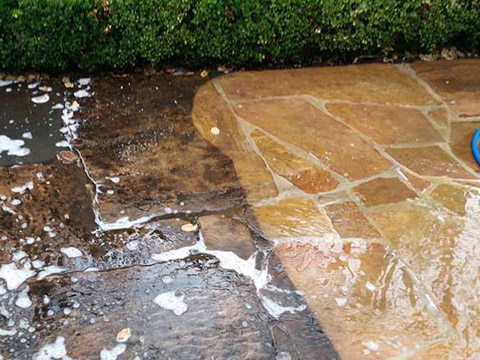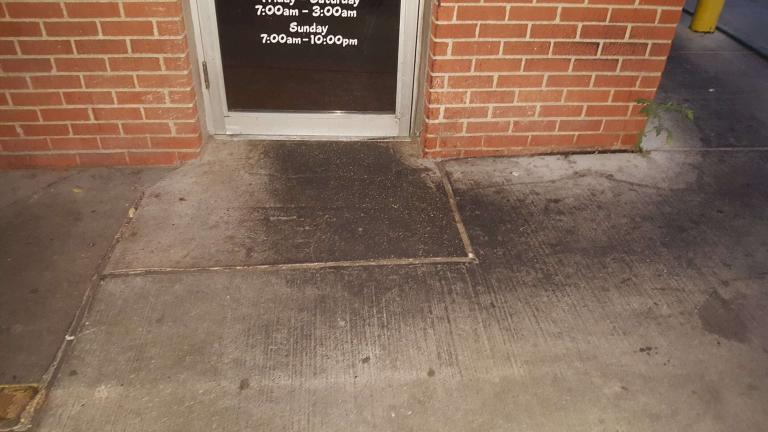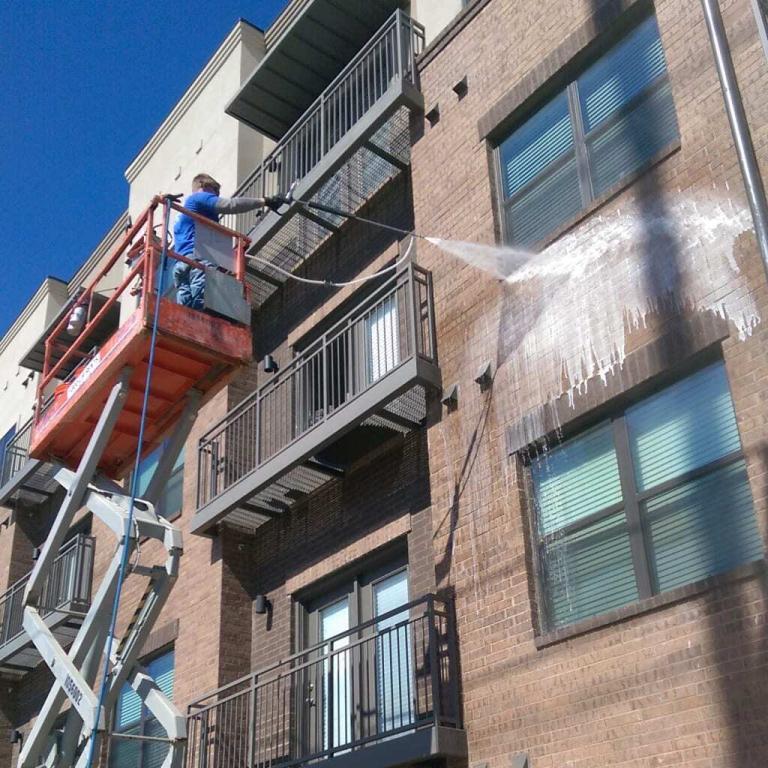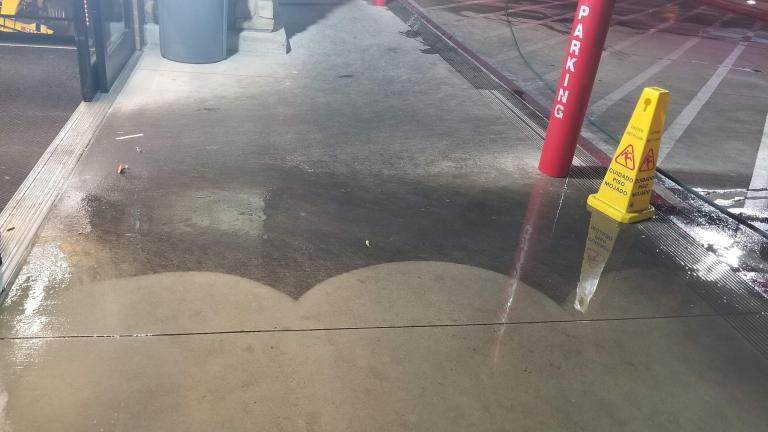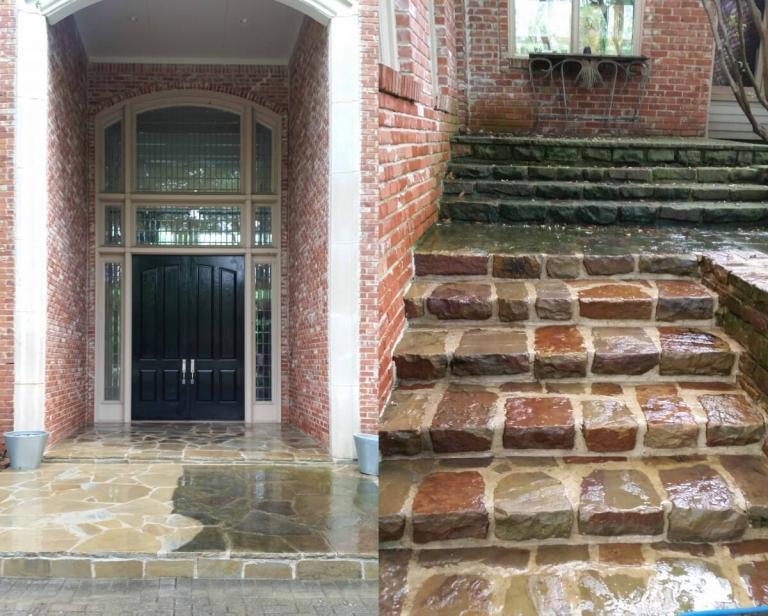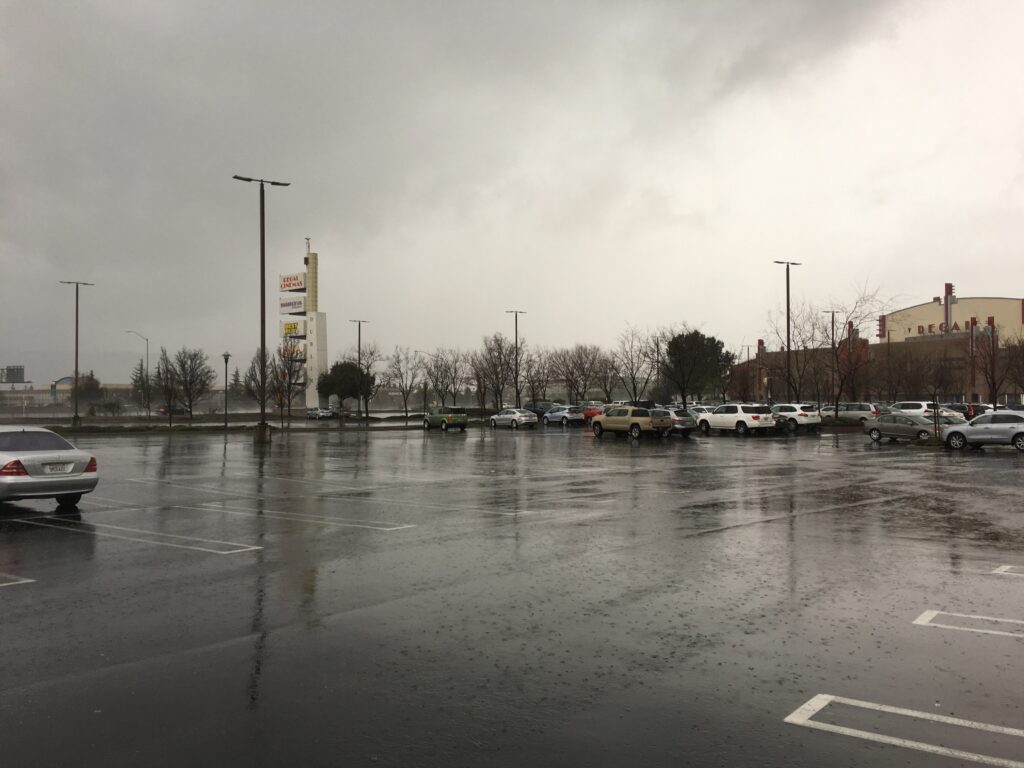
Does Rain Actually Make a Parking Lot Cleaner?
Living in Dallas, we’re no strangers to sudden weather changes. Among the common questions we get asked at Titan Pressure Washing is whether rainwater makes parking lots cleaner or dirtier. It’s an important question when considering parking lot maintenance, especially when factoring in the influence of vehicles. Let’s take a deep dive into this topic!
The Clean Side of Rain
At a glance, rain might seem like a nature-induced pressure washing for our streets and parking lots. It pours from the sky, washing away layers of dust and superficial grime. The positive aspects of rain include:
- Reducing airborne pollutants: Rain can trap and wash away some airborne particles, providing a fresher environment post-downpour.
- Removing visible stains: The initial showers can dislodge and dilute surface-level contaminants which get washed away to stormdrains.
The Hidden Side of Vehicle Contamination
Before we delve deeper into rain’s downsides, it’s crucial to understand another significant factor affecting parking lot cleanliness: vehicles. Every car, truck, or motorcycle entering a parking lot brings in contaminants.
- Dirt on Tires: A typical car tire can harbor over 420,000 different bacteria, not to mention the mud, dirt, and other particles they collect from various terrains. When it rains, this dirt is loosened up and deposits are moved to the roads, driveways and parking lots. For evidence of this, just look at the exit of any automatic car wash. The dark black concrete around these areas is caused by the release of dirt, brake dust, and fluid leaks that, when dry, are typically stuck to the sides of the car.
- Fluid Leaks: Aging or poorly maintained vehicles often leak oil, brake fluid, and other contaminants, leaving behind unsightly and harmful patches on the parking surface. When driven in the rain, these leaks are rinsed from the vehicle and left on the road and parking lots.
- Brake Dust: Every time a vehicle brakes, tiny particles from the brake pads, called brake dust, are released. This dust can settle on the parking surface, contributing to the grime.
Rain’s Dual Nature
Rain isn’t always the pure, cleansing force we imagine. Here’s how it can contribute to a dirtier parking lot:
- Rain Runoff: Rainwater, as it flows, collects vehicular fluids, spreading them across parking lots.
- Deposition of Airborne Contaminants: Rain can transport pollutants from industrial areas, depositing them in parking lots and other spaces.
- Stirring Up Dirt: Intense rain, especially in areas with inadequate drainage, can stir sediment and dirt, leaving a muddy residue post-evaporation.
- Releasing Dirt From Vehicles: As mentioned above, vehicles play a big role in the effects rain can have on a surface. With zero vehicle traffic the rain may actually leave a surface cleaner. But, with any vehicle traffic at all, chances are your parking lot will be much dirtier than before it rained.
So, What’s the Verdict?
While rain can give the illusion of a cleaner parking lot by washing away superficial dust and grime, the reality is more complex. Factor in local pollution, drainage quality, and vehicle-induced contamination, and the aftermath of a rain might leave your parking lot far dirtier than before.
How Titan Pressure Washing Can Help
Regardless of rain’s effects, consistent maintenance is crucial for maintaining clean parking lots. Titan Pressure Washing offers expert cleaning services tailored for homeowners and businesses in the Dallas Fort Worth Metroplex. Using state-of-the-art equipment, our team ensures your parking lots, driveways, and other surfaces remain spotless, safe, and looking their best.
In Conclusion: While nature and vehicles play their part, you can count on Titan Pressure Washing to keep your surfaces at their best, come rain or shine!
